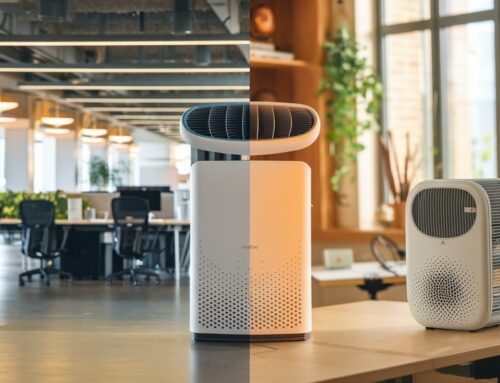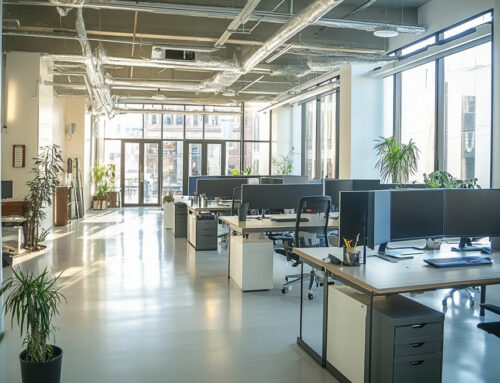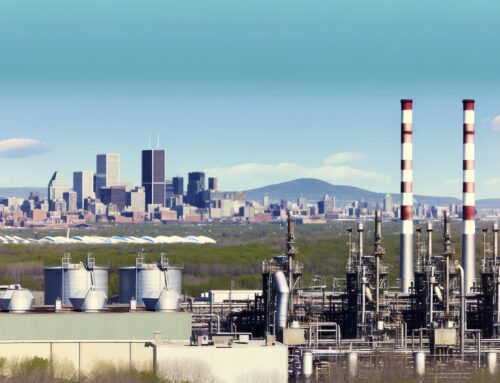March 27, 2024
HVAC Maintenance and Air Quality in Businesses: Our Top Strategies
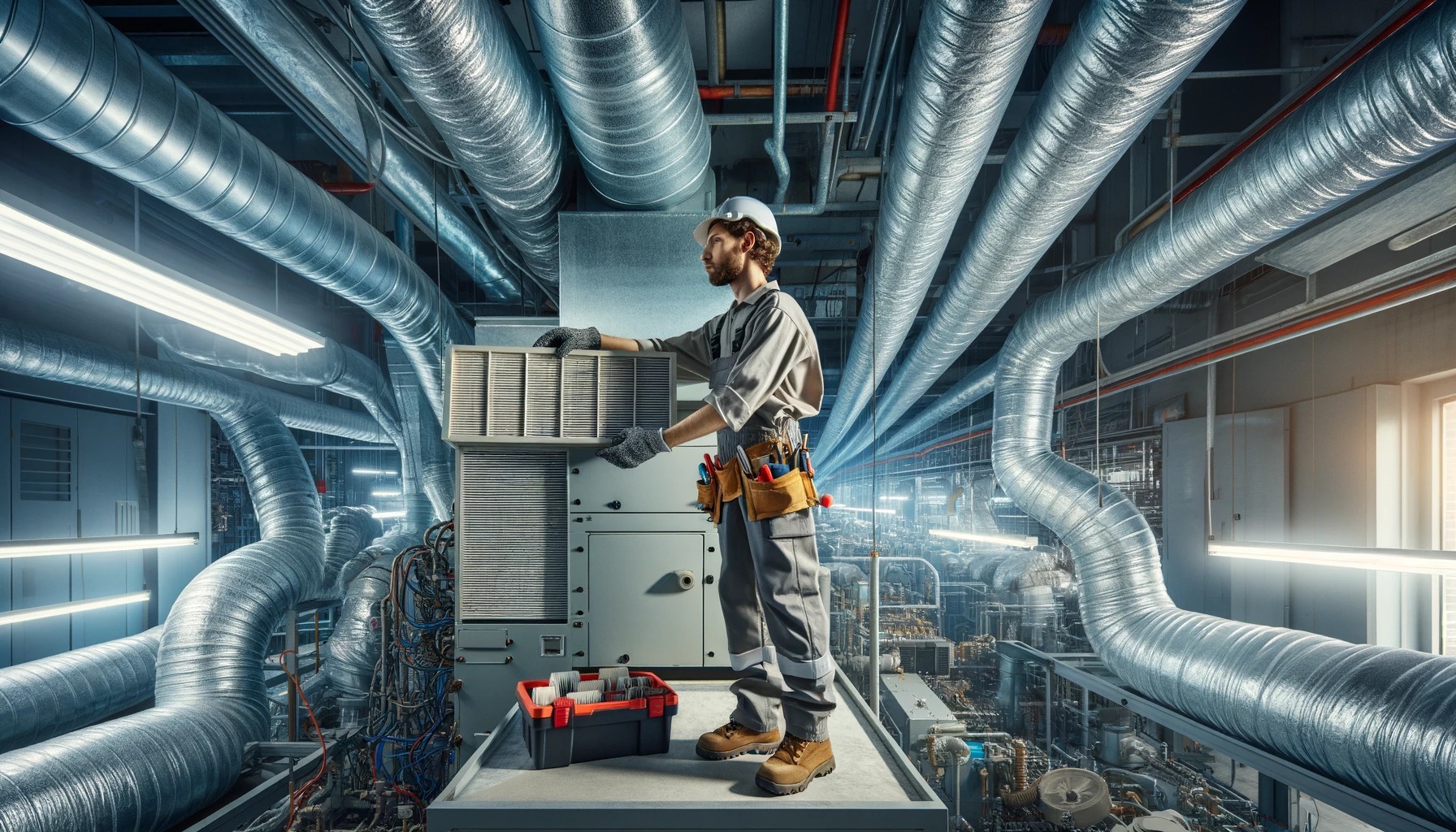
In our journey through the evolving landscape of business operations, we’ve come to understand the pivotal role of HVAC maintenance and air quality. These elements, including healthy air and safety, are not just about comfort; they’re about our health, productivity, and even the impact and benefits on the success of our ventures. Historically, businesses and managers overlooked this aspect until studies highlighted its impact on employee well-being, health risks, and efficiency, as well as its potential to cause health problems among customers. Today, we recognize that a well-maintained HVAC system, a crucial piece of equipment for indoor air quality management, is a cornerstone of a healthy workplace environment, addressing building air quality and preventing indoor air quality problems.
Importance of Clean HVAC Systems
Keeping our HVAC system clean directly improves the air we breathe. A clean HVAC system means fewer allergens like dust and pollen in the air. This is crucial for us, especially for friends with allergies, as it pertains to healthy air and addressing indoor air quality problems through indoor air quality management and building air quality.
Regular duct cleaning prevents mold and dust buildup. These can cause respiratory problems if ignored. We make it a point to schedule maintenance to avoid these health risks.
Energy Efficiency
A well-maintained HVAC system works more efficiently. We found that clean systems don’t have to work as hard to maintain temperature. This means they use less power.
Energy efficiency is important to us. It not only saves money but also reduces our carbon footprint. Keeping our HVAC system in top shape contributes to this goal.
For those looking to ensure their home environments are safe and free from allergens, exploring services like residential air quality testing can be a crucial step towards healthier living spaces.
To further protect against health risks associated with poor air quality, considering professional mold testing services can identify hidden problems and ensure clean, safe air.
Enhancing Comfort Through Ventilation
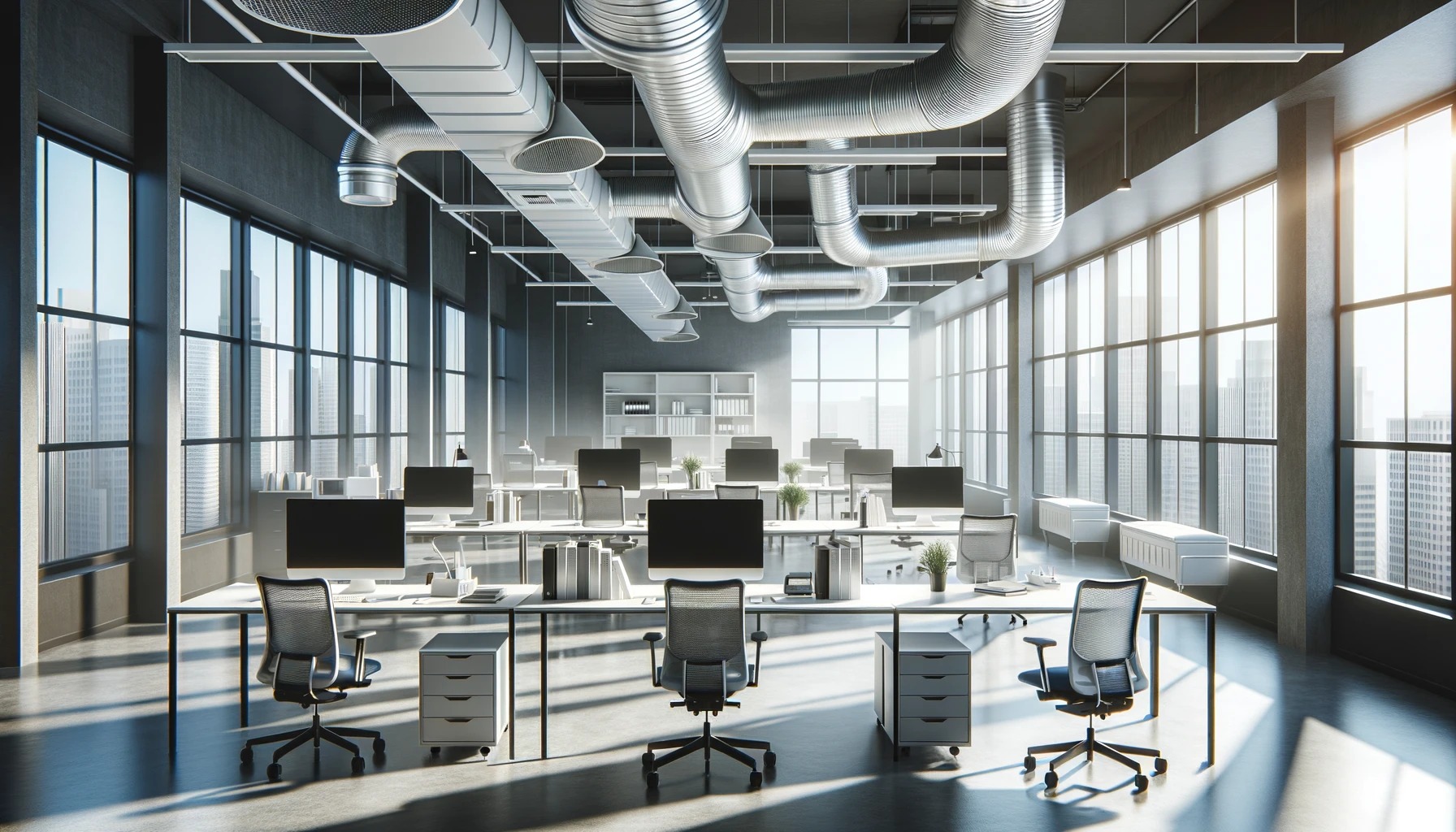
Proper ventilation plays a crucial role in keeping the indoor temperature and humidity levels comfortable. By optimizing our office ventilation system, building management ensures that air circulates effectively throughout the space, preventing problems for occupants. This prevents areas from becoming too hot or too cold, which can be a common comfort problem in poorly ventilated buildings.
Good airflow helps us maintain a consistent temperature. It allows for efficient cooling and heating, depending on the season. This balance is key to making everyone feel comfortable, no matter where they are in the building.
Air Quality
Enhanced ventilation also tackles odors and pollutants head-on. It’s not just about removing smoke or cooking smells; it’s about creating a fresher environment for everyone breathing in the space, thereby improving indoor air quality as part of effective building management.
By incorporating outdoor air, we dilute indoor pollutants like volatile organic compounds (VOCs) from building materials and furniture. This integration of fresh air is essential in spaces undergoing renovation or those that house materials emitting unpleasant odors.
Outdoor Integration
Integrating outdoor air into our indoor spaces is vital for improving overall air quality. It helps us dilute indoor pollutants, ensuring occupants breathe cleaner air. This practice is especially important in areas with high occupant density or where activities might introduce contaminants, such as smoking zones.
Regular maintenance of air ducts and supply vents ensures this process remains efficient. Without it, ductwork can become blocked, reducing the effectiveness of our ventilation system.
Boosting Indoor Air Quality Efficiency
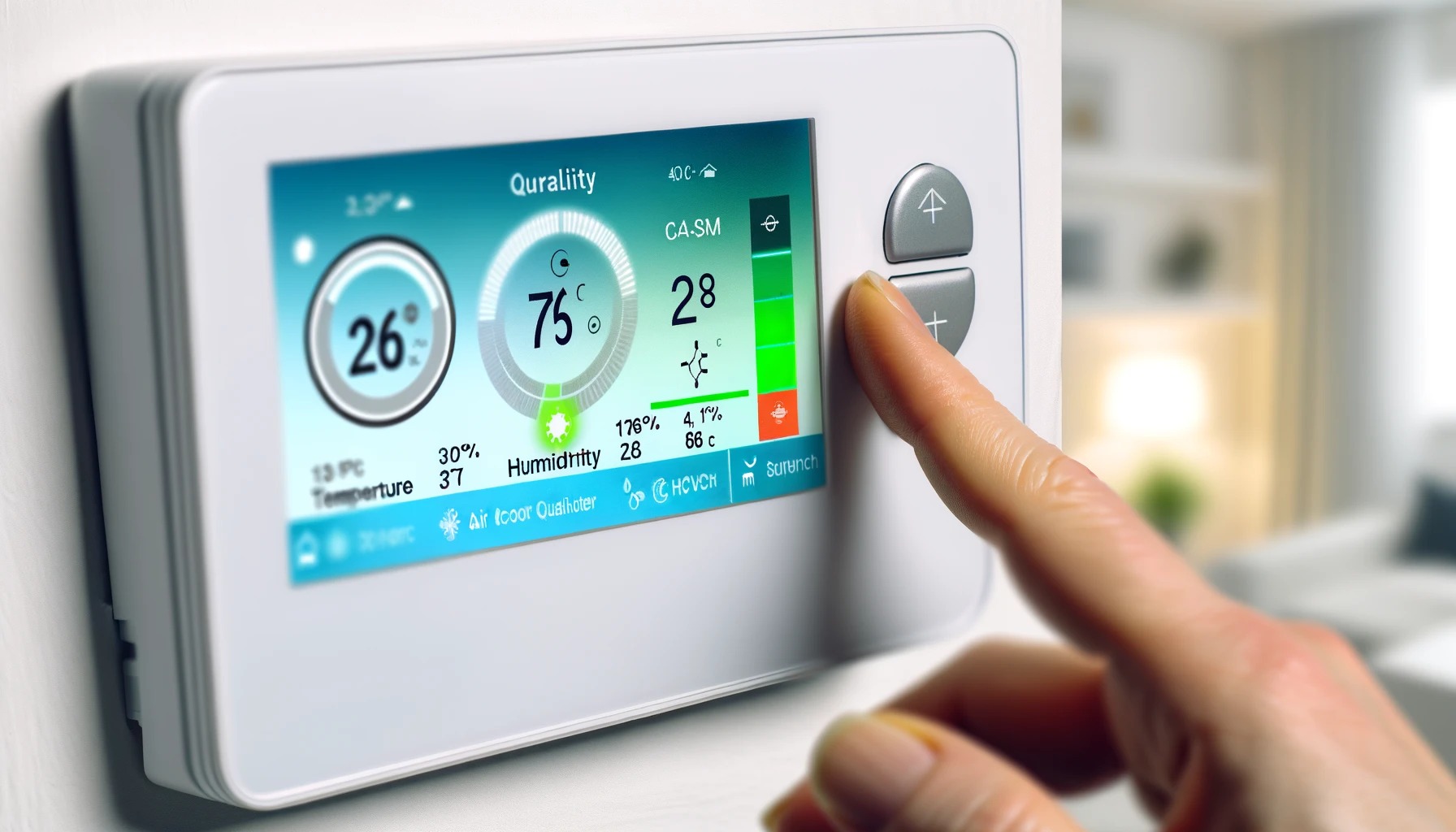
We often overlook the role of HVAC systems in maintaining indoor air quality. Yet, optimizing these systems is crucial for both energy efficiency and cleaner air.
By ensuring our HVAC systems are properly maintained, we can significantly reduce indoor air pollutants. This includes regular cleaning of vents and replacing filters. Such actions help our systems filter and circulate air more effectively. We’ve noticed a drop in energy consumption too, which is a win-win for us and the environment.
HEPA Filters
Another step we took was upgrading to HEPA filters. These filters are game-changers in trapping finer particles that other filters might miss.
The benefit? A noticeable improvement in our indoor environment. We breathe easier knowing that these high-efficiency particulate air filters are capturing dust, pollen, and other tiny pollutants that used to make us sneeze or feel uncomfortable.
Smart HVAC Systems
The latest addition to our effort has been smart HVAC systems. These systems adjust settings based on real-time air quality readings.
This means they work more efficiently, only kicking into high gear when necessary. It’s fascinating how technology can play a part in managing building air quality while keeping operations lean.
Understanding Commercial HVAC Air Quality
The importance of professional HVAC maintenance cannot be overstated for us. Complex commercial systems require expert care to operate at their best.
Professionals ensure that all components work together seamlessly, reducing the risk of breakdowns. They play a key role in keeping our indoor air clean and safe, directly impacting our health and well-being.
Filtering Pollutants
Our commercial HVAC systems are on the front lines, filtering out larger volumes of pollutants than typical residential units. This capability is vital for maintaining consistent indoor temperatures and high-quality air.
These systems use specialized filters designed to trap a wide range of pollutants, from dust to chemical vapors. Regular replacement and upgrades of these filters are essential steps we take to protect indoor air quality.
Addressing air quality in large spaces requires expertise; that’s why services such as commercial air quality testing are indispensable for businesses aiming to maintain a healthy indoor environment.
Achieving Energy Goals with Improved Air Quality
Energy recovery ventilators stand out as a game-changer. They harness energy from outgoing stale air to treat incoming fresh air. This process reduces the workload on our heating and cooling systems.
By integrating these technologies, we’ve noticed a significant drop in energy consumption. Our utility bills have become more manageable, proving that clean air doesn’t have to cost the earth.
Financial Upsides
The initial investment in advanced HVAC systems might seem daunting. However, the long-term savings are undeniable. Reduced energy bills are just the start.
We’ve also tapped into tax incentives aimed at encouraging energy-efficient practices. These benefits have made our journey towards better air quality and energy sustainability not just environmentally responsible but financially wise too.
Health Benefits
Improving indoor air quality goes beyond comfort; it’s about health. We’ve seen a decrease in health problems among our team, attributing this to fewer pollutants and contaminants in our workspace.
Healthy environments foster increased productivity. It’s clear that by investing in clean air, we’re also investing in our most valuable asset: our people.
Curbing Infection Transmission in the Workplace
Keeping our workspace safe starts with maintaining our HVAC system. This is crucial for reducing airborne pathogens. Regular checks and balances ensure that air circulating through our office or industrial settings is clean and less likely to carry infections.
A well-maintained HVAC also helps us meet safety regulations, showing our commitment to employee health. It’s our responsibility as managers to oversee these procedures, ensuring a work environment that prioritizes team members’ well-being.
UV-C Technology
Incorporating UV-C light systems into our HVAC units has been a game-changer. These systems are effective at killing bacteria and viruses in the air. They add an extra layer of protection against the spread of diseases within our business premises.
This technology not only keeps our employees healthy but also reassures them that we’re taking every possible measure to control exposure to harmful pathogens.
Ventilation and Filtration
Proper ventilation and air filtration play a significant role in creating a healthier workplace environment. Especially during flu season, these measures are vital in curbing the transmission of infections among workers.
Closing Thoughts
We’ve walked through the crucial role of HVAC maintenance and air quality in businesses, highlighting how clean systems and efficient ventilation can significantly enhance comfort, energy efficiency, and health within the workplace. From boosting indoor air quality to curbing infection transmission, it’s clear that investing in optimal HVAC solutions is not just a matter of compliance but a strategic move towards creating healthier, more productive environments.
For businesses and individuals ready to take the next step in ensuring optimal air quality, discovering experts is just a click away with our ‘find air quality services near me’ services.
Frequently Asked Questions
Why is it important to keep HVAC systems clean in businesses?
Clean HVAC systems ensure efficient operation, reduce energy costs, and improve the air quality within your business premises, contributing to a healthier work environment.
How does enhanced ventilation contribute to comfort in the workplace?
Enhanced ventilation helps regulate temperature, reduce humidity, and remove stale air, making the workplace more comfortable and conducive to productivity.
What are the top benefits of improving HVAC indoor air quality?
Improving HVAC indoor air quality leads to better health for employees, reduced absenteeism, increased productivity, energy savings, and a lower environmental footprint.
How does commercial HVAC air quality differ from residential?
Commercial HVAC systems are designed to handle larger spaces and more complex requirements, focusing on efficiency, reliability, and maintaining healthy indoor air quality across diverse business environments.
Can improved air quality help in achieving energy goals?
Yes, improved air quality through efficient HVAC systems can significantly reduce energy consumption by optimizing airflow and temperature control, contributing to sustainability goals.
How can we curb infection transmission in the workplace with HVAC maintenance?
Regular maintenance of HVAC systems can significantly reduce infection transmission by filtering out pathogens and ensuring proper ventilation, creating a safer work environment.
What should businesses consider when investing in optimal indoor air quality solutions?
Businesses should consider factors like the size of their space, specific industry requirements for air quality, energy efficiency goals, and budget constraints while investing in tailored indoor air quality solutions.



